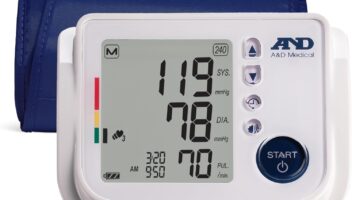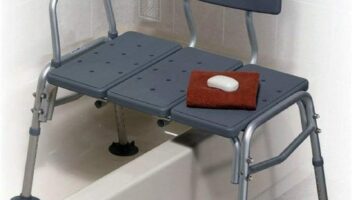Let’s be real for a moment—anxiety can feel like a constant companion, one that shows up uninvited. Maybe it’s that tightness in your chest before a big meeting or that relentless loop of worries that makes it hard to sleep at night. If you’ve been there, trust me, you’re far from alone.
But here’s the good news: mindfulness and meditation are powerful tools that can help us manage that unwelcome guest of anxiety. I’m excited to share with you how these practices have changed my life and could very well change yours, too. So, let’s dive in!
What Exactly is Mindfulness and Meditation?
Before we get into the nitty-gritty, let’s clarify what mindfulness and meditation really are.
-
Mindfulness is all about being present in the moment. It encourages us to engage with our current thoughts, feelings, and surroundings without judgment. It’s like putting on a pair of glasses that help you see your emotions clearly, rather than letting them cloud your vision.
- Meditation, on the other hand, is often a practice used to cultivate mindfulness. It involves setting aside time—usually in a quiet space—to focus your mind, whether through breathing exercises, guided imagery, or even simply observing your thoughts.
I remember my first experience with meditation. Picture this: I was sitting cross-legged on the floor, trying to mimic all those serene yogis I had seen online. My mind raced through an endless checklist of tasks, from groceries to deadlines. I thought, “How can this possibly help with my anxiety?” Spoiler alert: it did.
Why Mindfulness Matters in the Midst of Anxiety
Now, you might be wondering, “How does sitting still with my thoughts help ease anxiety?” Well, here’s where the magic comes in. Mindfulness helps us step back from our anxious thoughts instead of being engulfed by them. It teaches us to acknowledge our emotions without letting them dictate our actions.
In my own life, practicing mindfulness has shifted my relationship with anxiety. Instead of labeling my anxious thoughts as “bad” or trying to suppress them, I learned to sit with them. I started viewing anxiety not as a foe but as a sensation—like an uninvited guest who eventually leaves when you don’t give them attention.
Simple Mindfulness Techniques to Try
Feeling intrigued? Here are a few mindfulness techniques that you can easily incorporate into your day-to-day life:
1. Five Senses Exercise
Whenever you start feeling anxious, pause and take note of your surroundings using each of your five senses. What do you see? What sounds can you hear? Is there a taste on your tongue? This simple exercise can ground you back in reality when anxiety feels overwhelming.
2. Body Scan Meditation
This technique involves focusing your attention sequentially on different parts of your body, acknowledging any sensations you feel. Lie down comfortably, close your eyes, and visualize a warm wave of relaxation washing over each body part. Trust me; it’s more refreshing than a nap!
3. Mindful Walking
Next time you step outside, try walking mindfully. Feel the earth beneath your feet, notice the wind on your skin, and embrace the sounds around you. This small shift of awareness can transform the mundane into a moment of peace.
The Role of Regular Meditation
While mindfulness can be approached in snippets throughout your day, regular meditation sessions can deepen your practice. Just think of it as exercise for your brain! At first, I was skeptical. Could I really carve out time for something that felt so… unproductive? But, over time, I discovered that those moments of stillness allowed my mind to reset.
You don’t need to sit for hours—start with just five or ten minutes a day. Use apps like Insight Timer or Headspace to guide you.
Building a Daily Practice
Creating a routine makes all the difference. For me, it was morning meditation with my cup of coffee. It became my sanctuary. If you’re not a morning person, find what works best for you. Maybe it’s a few minutes before bed or during your lunch break. Consistency is key here.
One morning I awoke, my mind brimming with fear about an upcoming presentation. After meditating for a few minutes, I noticed the heaviness had lifted. Sure, I still felt a twinge of nerves, but I was calmer and more centered.
Conclusion: A Journey, Not a Destination
Both mindfulness and meditation aren’t quick fixes; they’re ongoing journeys. It’s about weaving these practices into the fabric of your everyday life. Remember, it’s okay to have off days—what matters is the commitment to keep returning to your breath, your thoughts, and your presence.
So, the next time anxiety knocks at your door, invite mindfulness in for a cup of tea. You might just find that your unwanted guest is a little less daunting with some calming company.
Your journey to tackling anxiety starts today. Take a deep breath, and let’s embrace the present moment together. You’ve got this!
Disclosure:
Hospitals.net is a participant in the Amazon Services LLC Associates Program, an affiliate advertising program designed to provide a means for sites to earn advertising fees by advertising and linking to Amazon.com, .ca, .co.uk, etc.
AI Disclaimer:
Hospitals.net uses artificial intelligence (AI) tools to assist in gathering and summarizing product information, including reviews and other relevant data for Amazon products and services. While we strive to ensure the accuracy of the information provided, AI-generated content may not always reflect the most up-to-date or accurate details. The information on our site should not be considered professional advice, and users are encouraged to verify any product details directly with Amazon or other official sources before making a purchase.
We do not guarantee the completeness or accuracy of the AI-generated content and are not liable for any discrepancies or errors. Any reliance on the information provided is at the user’s own risk. By using this site, you acknowledge that product availability, pricing, and other details may change over time, and Hospitals.net is not responsible for these changes.
Health Disclaimer:
The health products and information provided on Hospitals.net are for informational purposes only and are not intended to substitute professional medical advice, diagnosis, or treatment. Always consult a qualified healthcare provider or medical professional before using any health products or following any advice you find on this site. The content on Hospitals.net, including product recommendations and reviews, is not a substitute for individualized care from a healthcare provider.
We make no warranties or representations regarding the effectiveness, quality, or safety of the products listed on our site. Any use of these products is solely at your own risk. Hospitals.net is not liable for any harm, injury, or adverse effects that may result from the use or misuse of the health products or information provided.
Please read all product labels, warnings, and directions provided by the manufacturer before using any product. If you have any questions about a product or its suitability for your condition, we recommend contacting the manufacturer directly or consulting a healthcare professional.
If you have any concerns regarding the accuracy of the information on this site, please contact us for further clarification.



